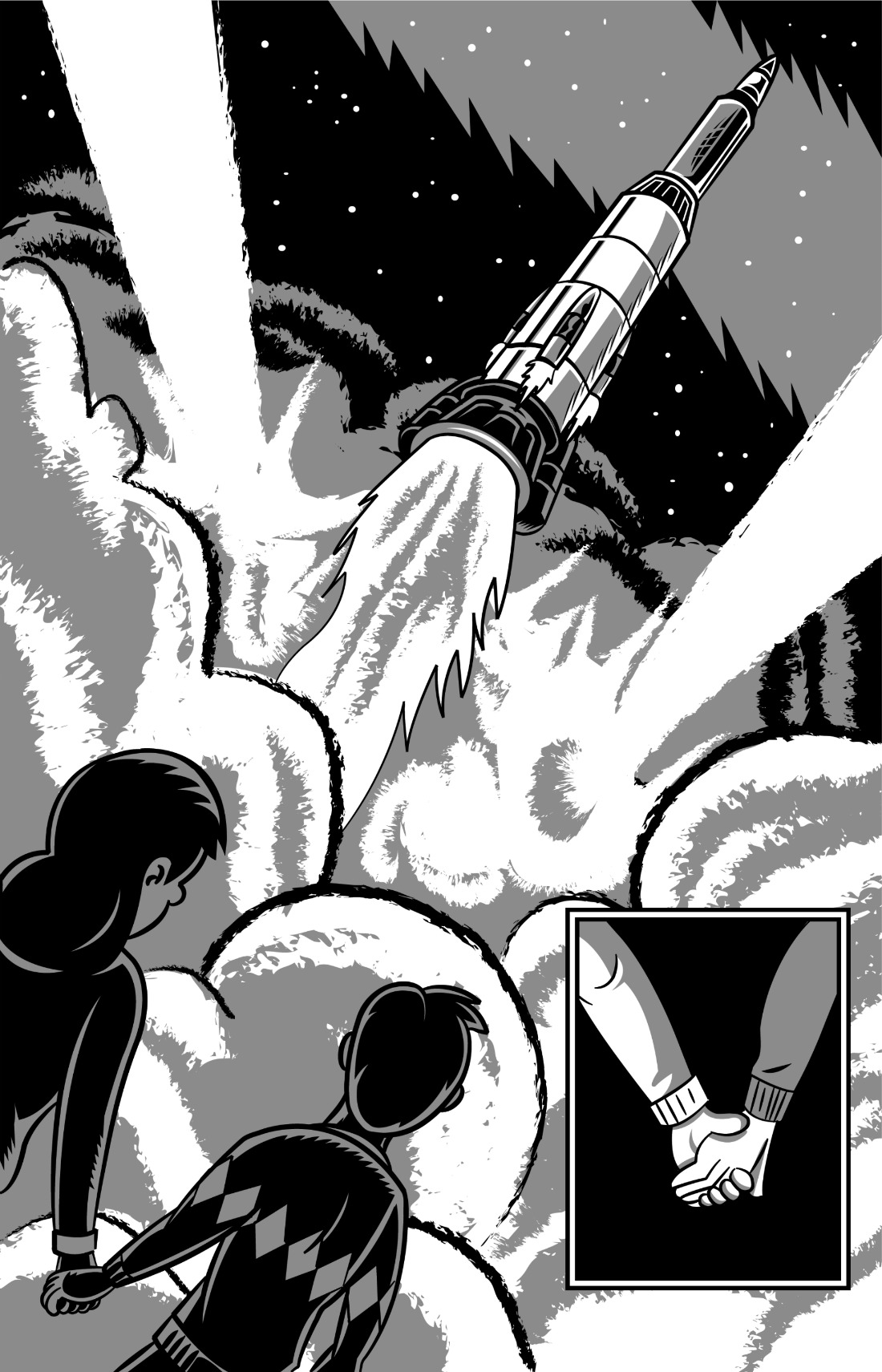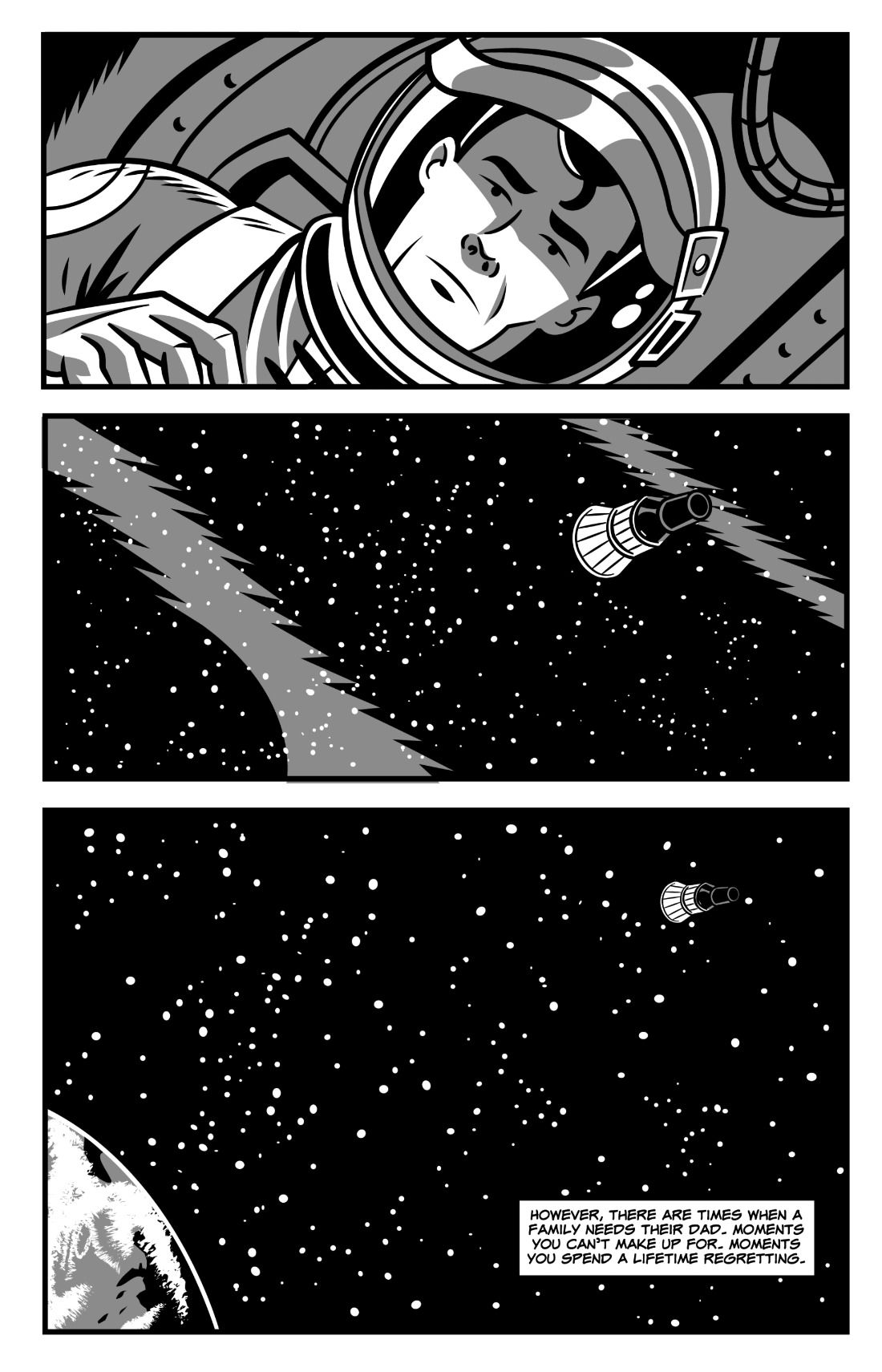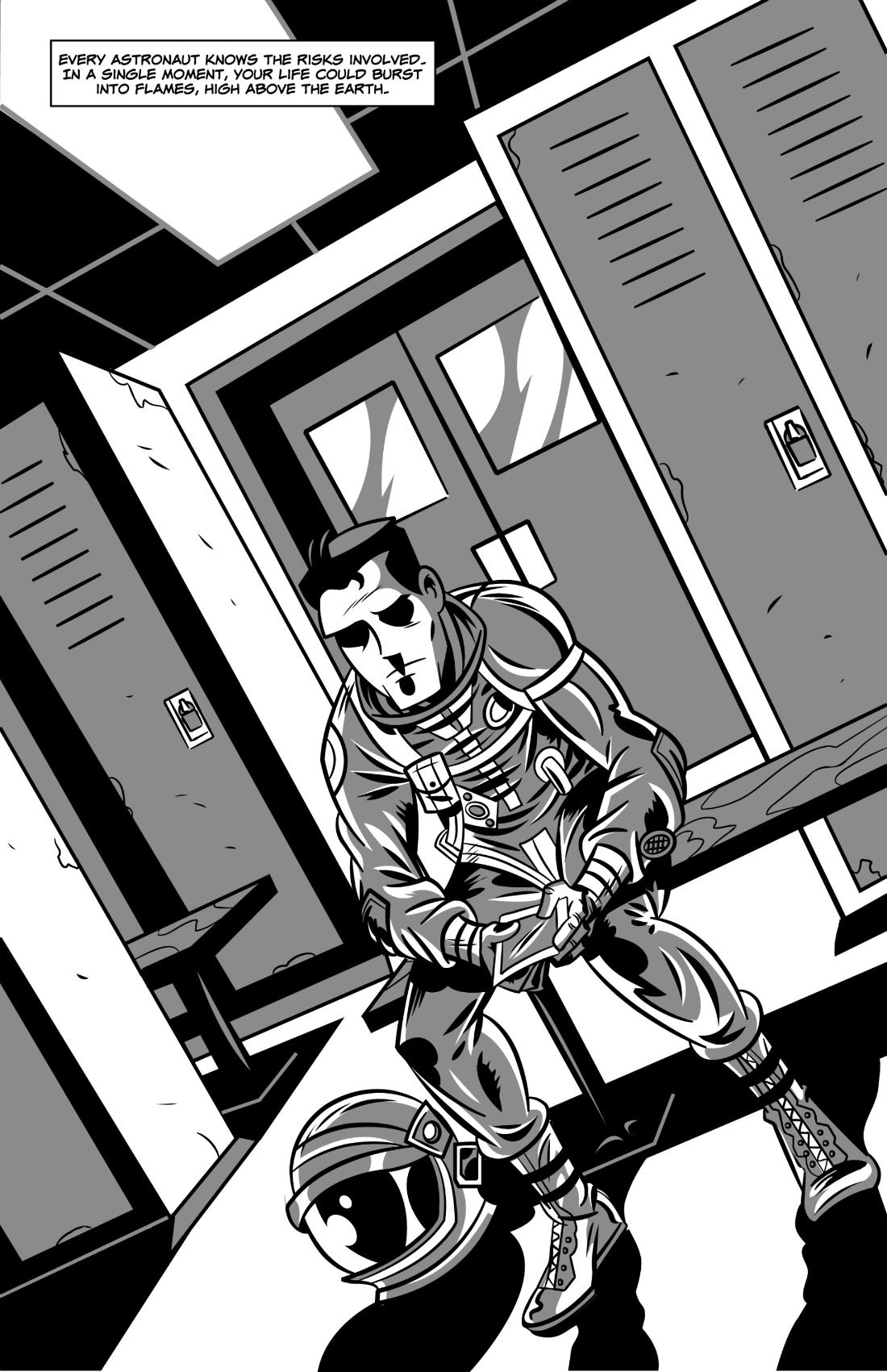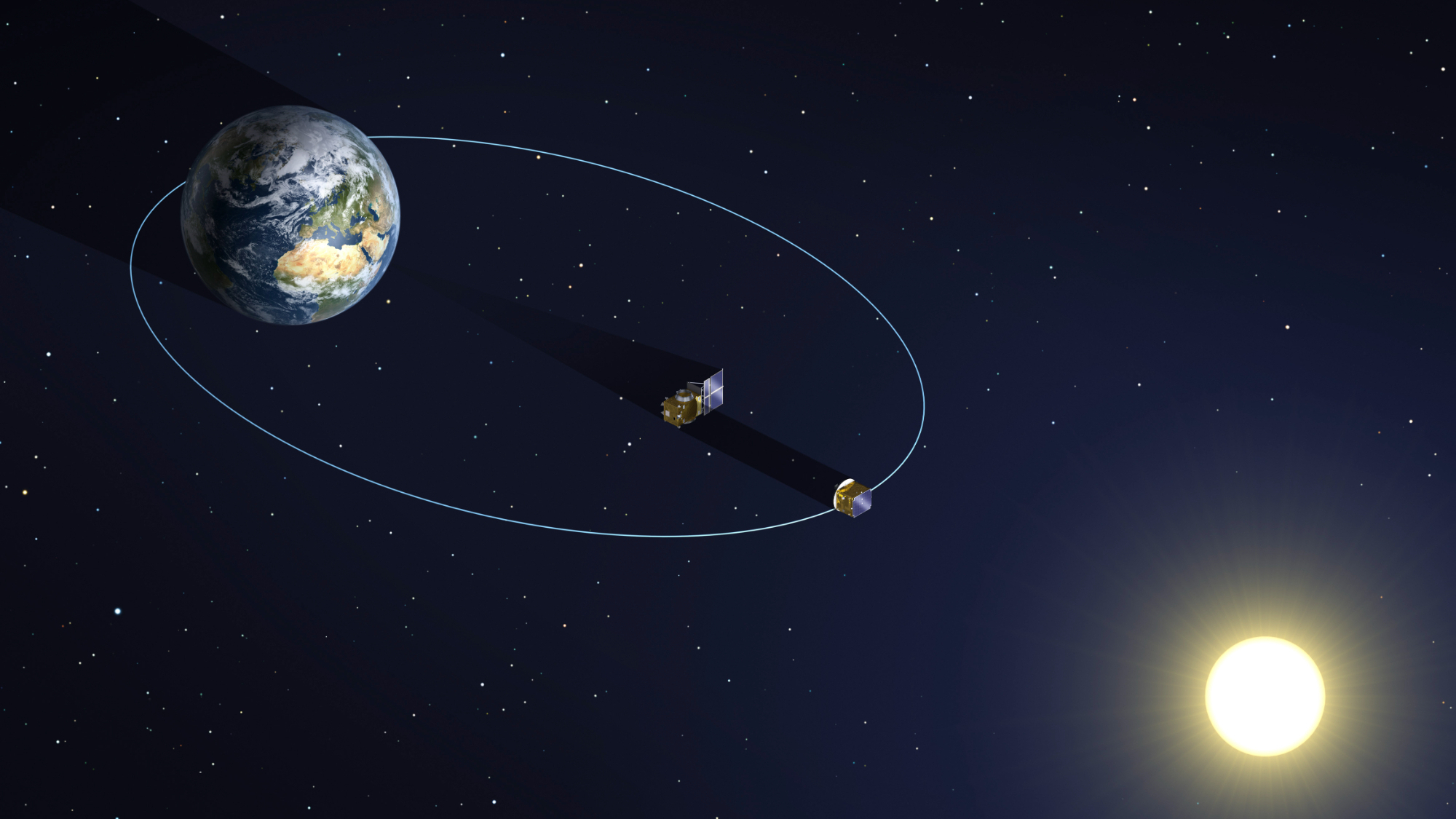'Astronaut Dad' Graphic Novel Debuts at NY Comic Con

NEW YORK - A graphic novel that tells a moving, fictional story about a group of backup astronauts in the early 1960s, and the complicated relationships they have with their families, is debuting in its completed format at this year's New York Comic Con.
The full version of "Astronaut Dad," written by David Hopkins and illustrated by Brent Schoonover, includes the second and final volume of the story. The first volume was published and released by the now-defunct Silent Devil Productions in 2008.
"Astronaut Dad" follows a group of second-string astronauts in the early 1960s, just before the rise of NASA's Apollo moon program. The coming-of-age story centers around the astronauts' children, who have thorny relationships with their fathers, and who struggle with the growing pains of having a parent often absent from their lives.
In volume one, two of the children, Jimmy Norton and Vanessa Kelly, discover that their fathers, who they thought were less-than-glamorous astronaut reservists, are actually involved in an orbital spy program. In the long-awaited second volume, the families are touched by tragedy, and Jimmy and Vanessa are left to cope with the changing perceptions they have of their fathers as they transition through life.

Fact and fiction
With the story set in the early 1960s, as NASA ramped up its Apollo moon program, the story of the children's struggle also mirrors the difficult transition that the nation's space program underwent at the time. [Lunar Legacy: 45 Apollo Moon Mission Photos]
"The whole story is a coming-of-age story, so I kind of wanted to sequence the story itself in a transition period for NASA too," Hopkins told SPACE.com. "I wanted to parallel the two, and I tried to set the story in a time that was like NASA's transition from childhood to adulthood."
Get the Space.com Newsletter
Breaking space news, the latest updates on rocket launches, skywatching events and more!
And while the story centers around the children of spaceflyers, Hopkins took inspiration from aspects of his own life.
"It was a very personal book for me, because in part, I based it off my relationship with my own dad," Hopkins said. "He was a really great man, but I really never saw him much when I was growing up. So, in 'Astronaut Dad,' what's further away than outer space?"
In writing "Astronaut Dad," Hopkins extensively researched the time period, delving into the lives of the Mercury and Gemini program astronauts of that era. To capture the personal side of being an astronaut, Hopkins found an invaluable resource in Life magazine, which closely chronicled not only the 1960s test pilots and astronauts, but also their wives and children.
"Life magazine was all over the astronauts and their personal lives," Hopkins said. "I went to antique malls picking up old copies. They were so fascinated and on top of the daily lives of these astronauts — whether they were at work, barbequing, on the beach with their wives — it was a lot of fun discovering new things. Of course, my characters are fictional, but it helped me get a sense of what kinds of things they talked about, what they did in their free time."

Taking cues from the classics
And while space travel and the cosmos have been recurring themes in many comic books, "Astronaut Dad" is less a sci-fi novel than a sobering, human tale. Yet, Hopkins originally used the Fantastic Four as inspiration for his story. [Top Ten Members of the Fantastic Four]
"The more I looked at the Fantastic Four, the more I realize that the appeal when that comic first came out was the appeal of the space age," Hopkins said. "I thought, why don't I strip away all the superpowers and tell a story about a family where the father is, in a sense, a superhero. But I wanted to tell a more realistic story."
Hopkins has collaborated with Schoonover before, and the writer spoke fondly of their teamwork on "Astronaut Dad."
"[Brent's] style is heavily influenced by early turn-of-the-century comic book artists, like Jack Kirby," Hopkins said. "His style is a little more cartoon-y, and we wanted something that looked like that. I think Brent really got a good feel for what we were trying to accomplish with the book.
For Hopkins, who is a self-professed fan of NASA and the space program, the process of writing "Astronaut Dad" was not only fun, but an incredibly satisfying experience. As for wanting to fly in space himself, he sees his role more on the creative side on terra firma.
"It's so funny because I never really thought of that as something that was possible for me," Hopkins said. "I always wanted to be an artist or a writer growing up. I was in elementary school during the [space shuttle] Challenger tragedy, so I remember growing up with a real idea of how dangerous it was. But, it was one of those things that I've always been fascinated by, particularly the imagery."
You can follow SPACE.com staff writer Denise Chow on Twitter @denisechow. Follow SPACE.com for the latest in space science and exploration news on Twitter @Spacedotcom and on Facebook.
Join our Space Forums to keep talking space on the latest missions, night sky and more! And if you have a news tip, correction or comment, let us know at: community@space.com.

Denise Chow is a former Space.com staff writer who then worked as assistant managing editor at Live Science before moving to NBC News as a science reporter, where she focuses on general science and climate change. She spent two years with Space.com, writing about rocket launches and covering NASA's final three space shuttle missions, before joining the Live Science team in 2013. A Canadian transplant, Denise has a bachelor's degree from the University of Toronto, and a master's degree in journalism from New York University. At NBC News, Denise covers general science and climate change.
